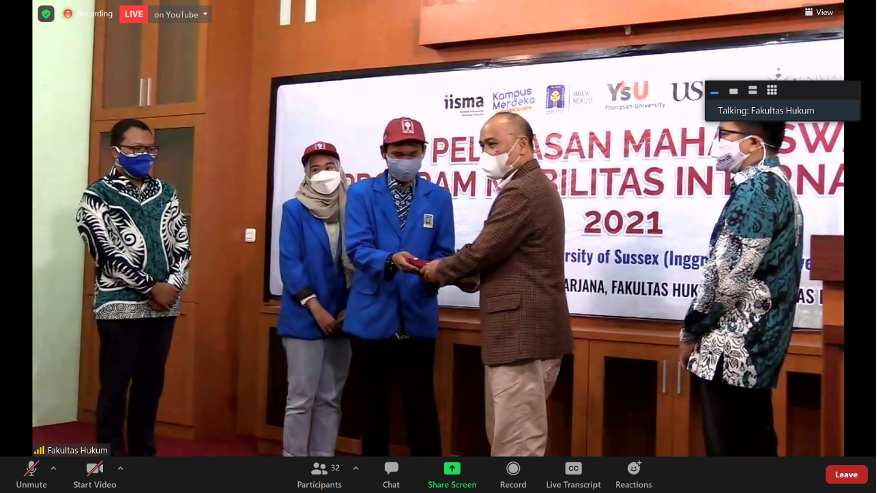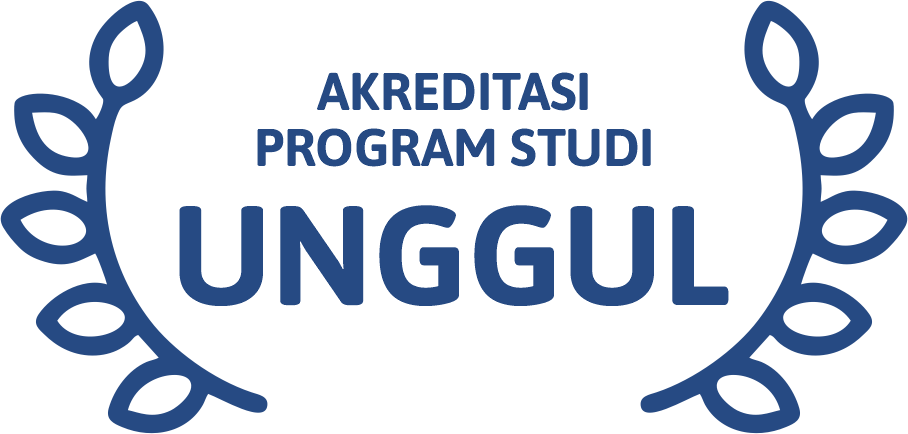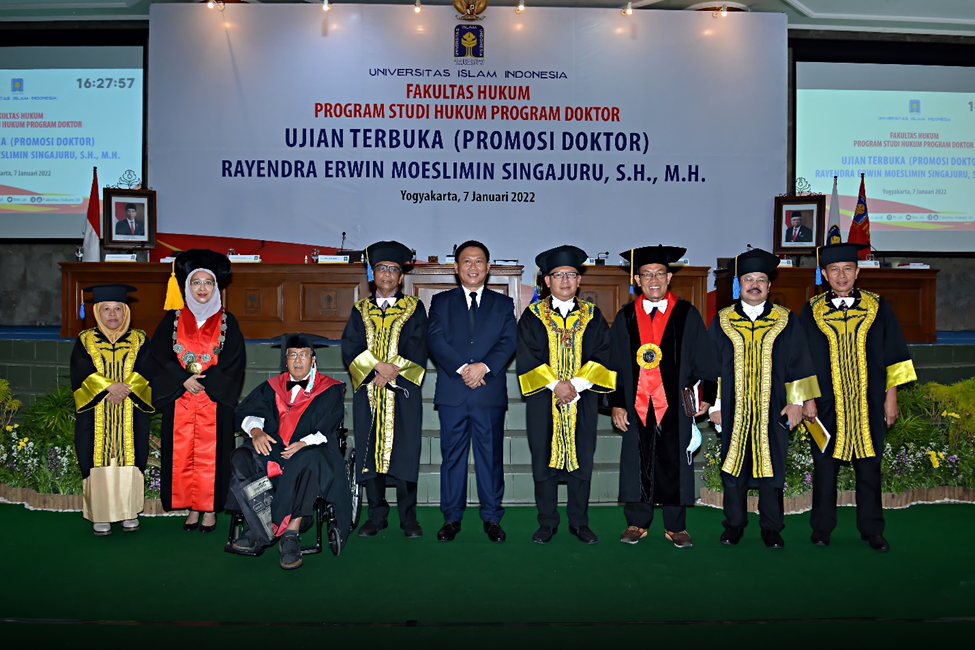
KALIURANG (UII News) – The dissertation entitled “Election Dispute Resolution Legal Politics: Initiating the Establishment of an Election Court in Indonesia” succeeded in leading Rayendra Erwin Moeslimin Singaruju, SH, MH, to defend his dissertation by earning a Doctoral Program in Law Faculty of Law Universitas Islam Indonesia.
The open examination was also attended by 2 Heads of State High Institutions, namely the head of Supreme Court (MA) RI Prof. Dr. H. M. Syarifuddin, S.H., M.H, and the Chairman of the Indonesian Supreme Audit Agency (BPK) Dr. Agung Firman Sampurna, CSFA., CFrA., CGCAE., QGIA. As well as 2 Ministers, namely the Coordinating Minister for Political, Legal, and Security Affairs, Prof. Dr. H. Mohammad Mahfud Mahmodin, S.H., S.U., M.I.P who also appeared as one of the examiners and the Indonesian Minister of Home Affairs (Mendagri) General Police (Purn.) Prof. Drs. H. Muhammad Tito Karnavian, M.A., Ph.D.
The Doctoral Promotion Examination was held on Friday, 4 Jumadil Akhirah 1443 H/7 January 2022 at the Prof. Auditorium. Dr. KH. Kahar Muzakkir. Erwin explained his dissertation on the Election Court in front of the examiners. Namely. Besides Prof. Mahfud MD, the examiner for this doctoral promotion is Prof. Fathul Wahid Ph.D, Rector UII, Prof. Dr. Ni’matul Huda SH MH (Promoter), Prof. Jawahir Thantowi, P.hD (Co-Promoter), Prof. Dr. Mahfud MD (Examiner), Prof. Amzulian Rifai, P.hD (Examiner), Pro. Dr. Muhammad Fauzan (Examiner), Prof. Dr. I Gusti Ayu Ketut Rachmi Handayani SH,. MH (Examiner) and Dr. Suparman Marzuki SH MSi was also the examiner.
Furthermore, the dissertation entitled “Legal Politics of Electoral Dispute Resolution: Initiating the Establishment of an Electoral Court in Indonesia” seeks to answer the problem of resolving electoral disputes in Indonesia and the ideal election court in the future. In his presentation, Erwin emphasized that the research results showed that the legal politics of election dispute resolution so far has not been strongly and stable institutionalized in one institution.
“Two judicial power institutions, namely the Supreme Court and the Constitutional Court with different character and constitutional mandates, have alternated as places for resolving election disputes, he said. He again explained that the different procedures and decisions of the two often contradict each other and create legal uncertainty and ultimately do not give a sense of justice. Therefore, according to Erwin, in the future an election court institution is needed with a special mandate to adjudicate election disputes which are formed based on the orders of the Election Law, so that there is legal consistency, legal certainty and fairness in the resolution of election disputes,” said Erwin, who is also a former member of the DPR RI.

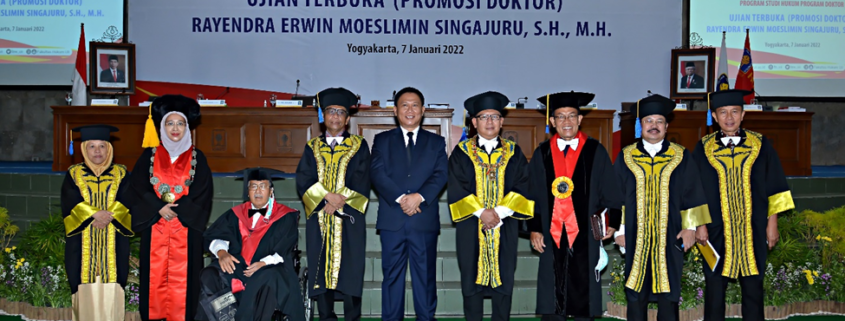
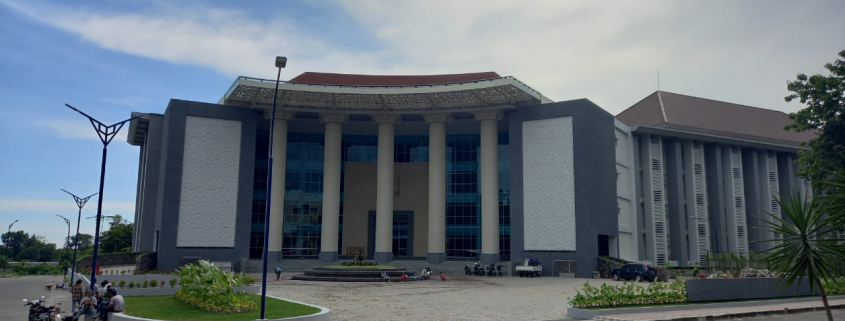
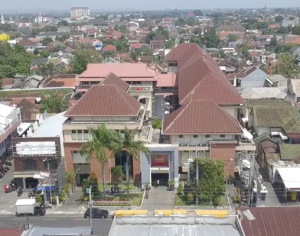
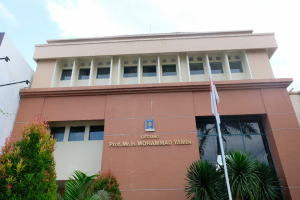
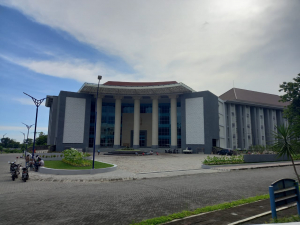
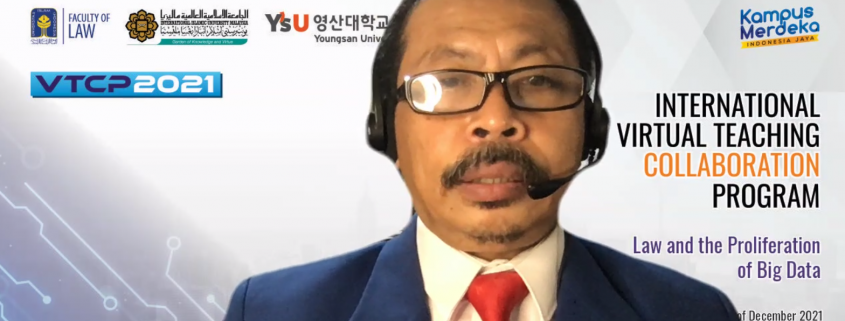
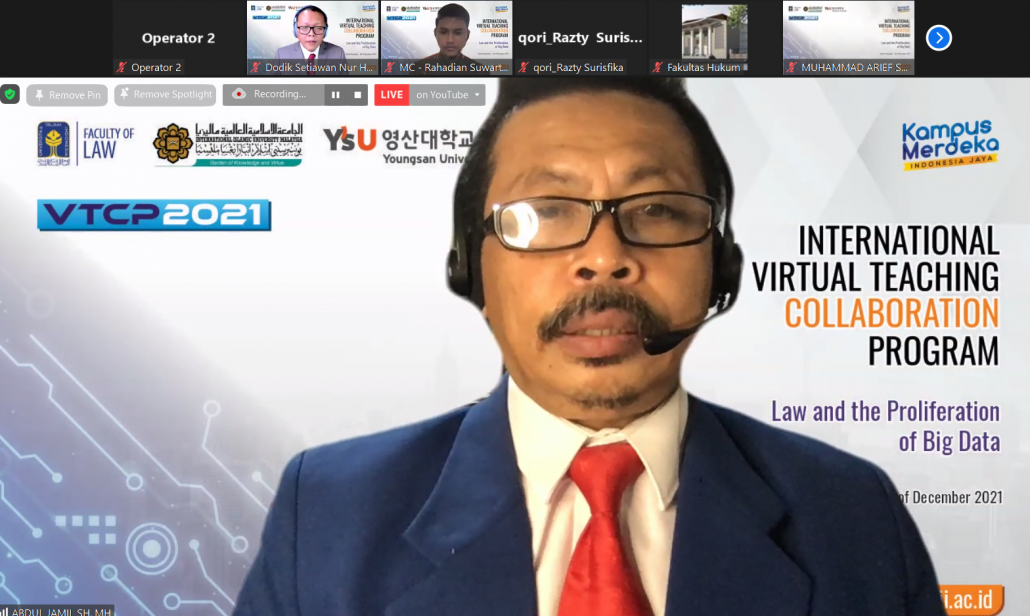
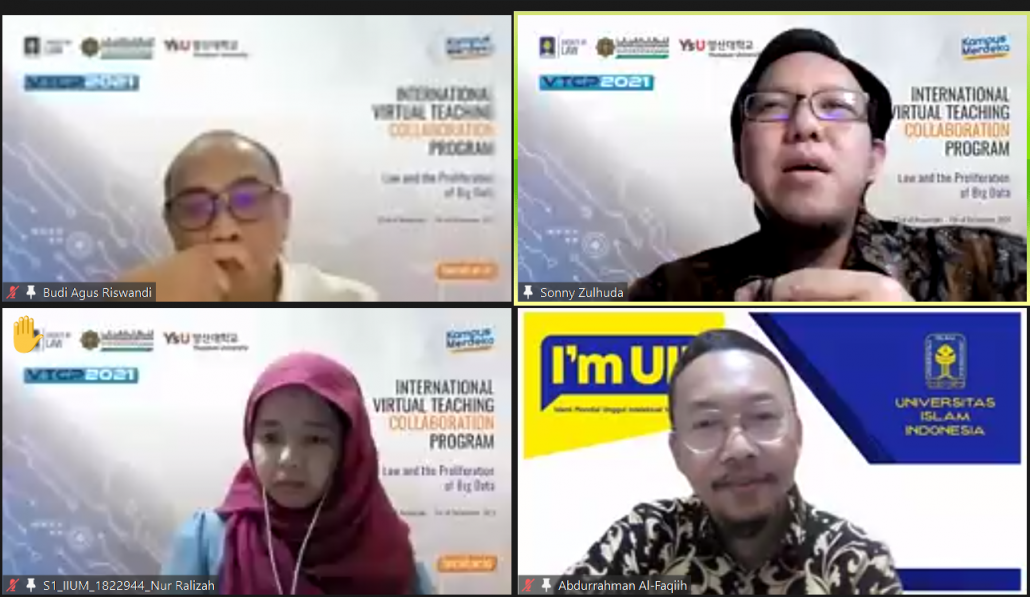
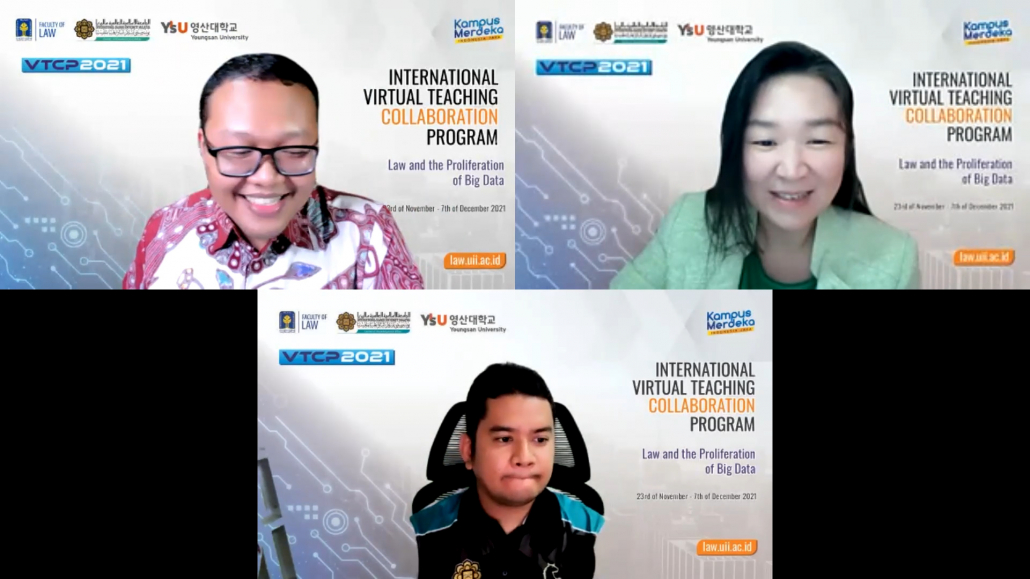
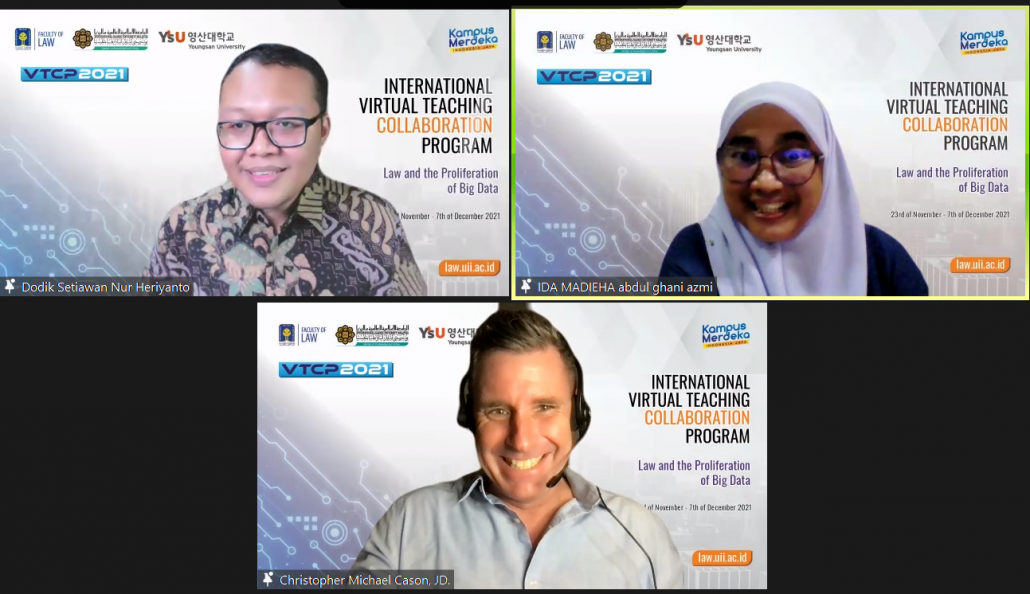
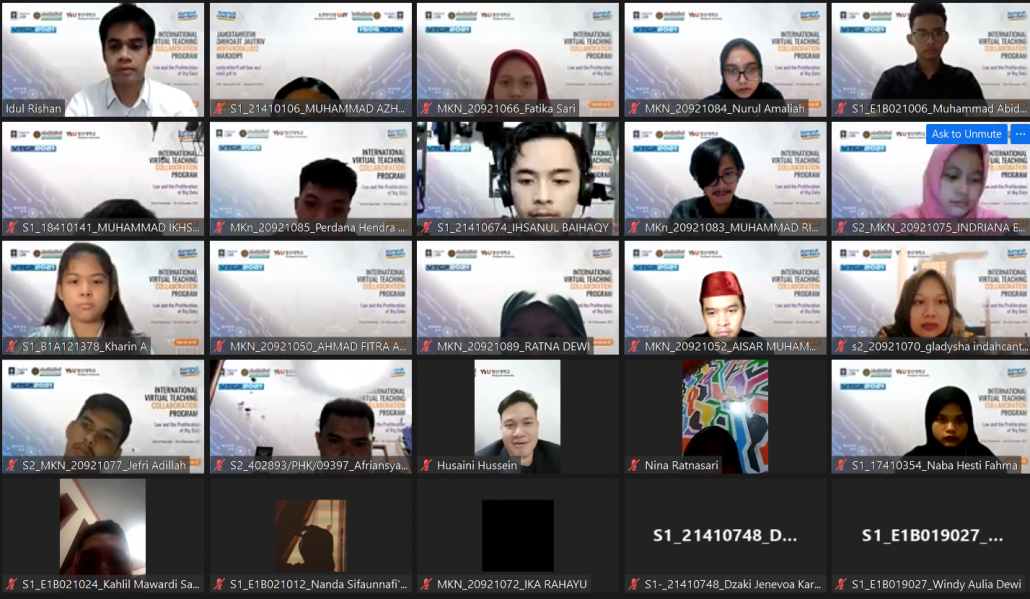
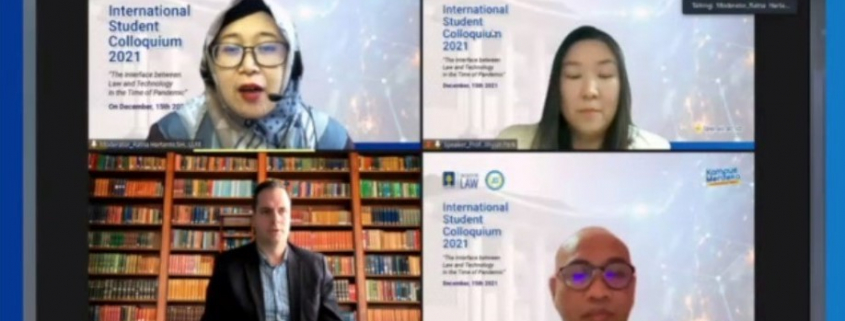
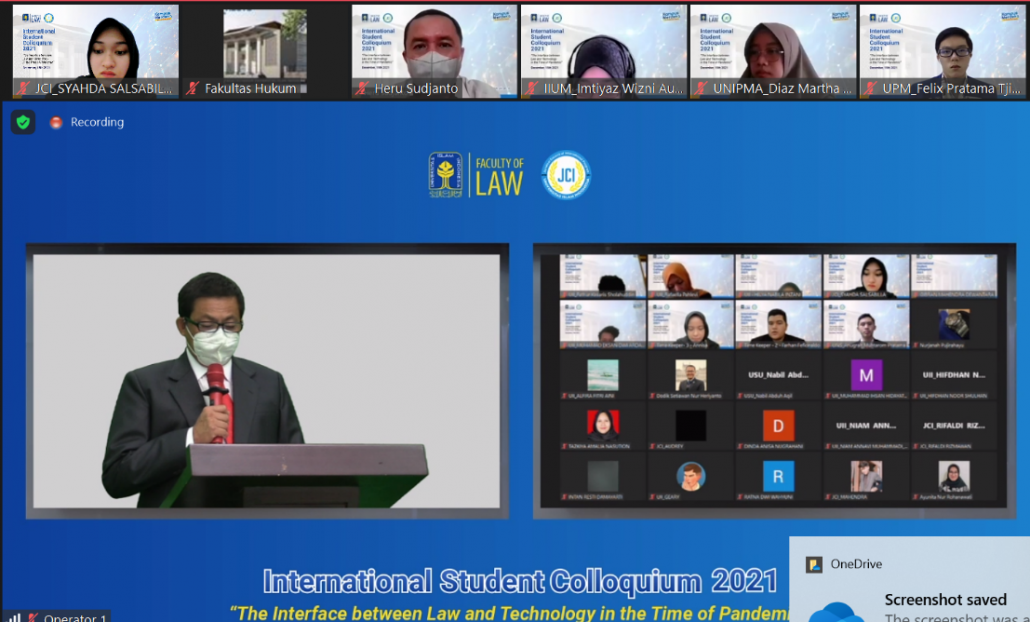
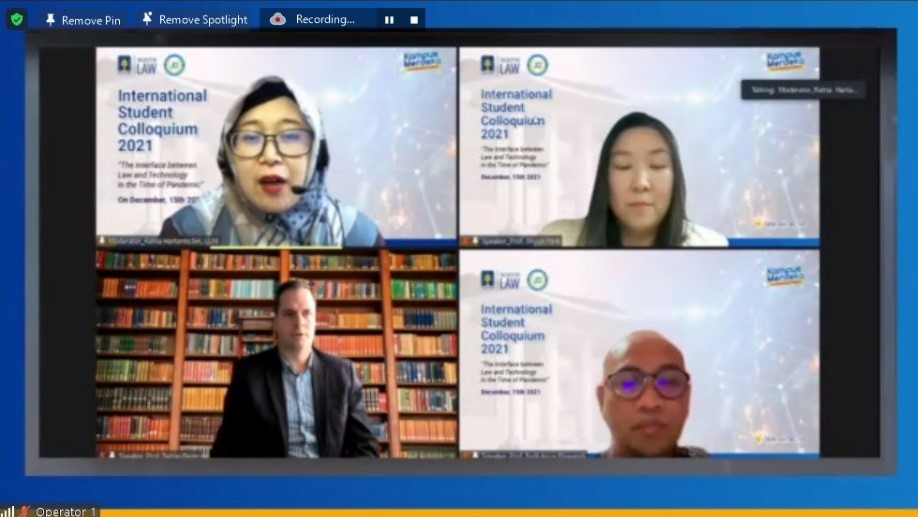
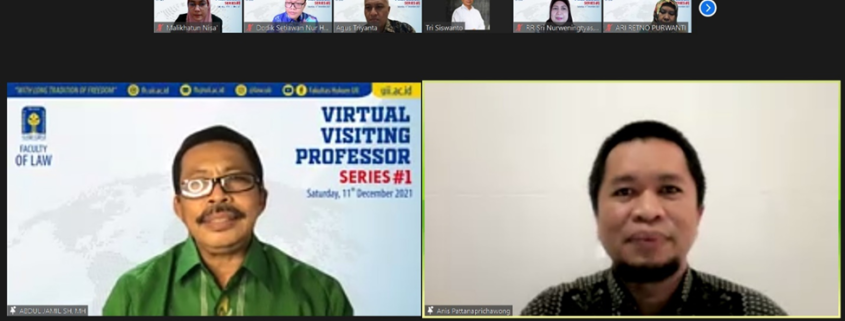
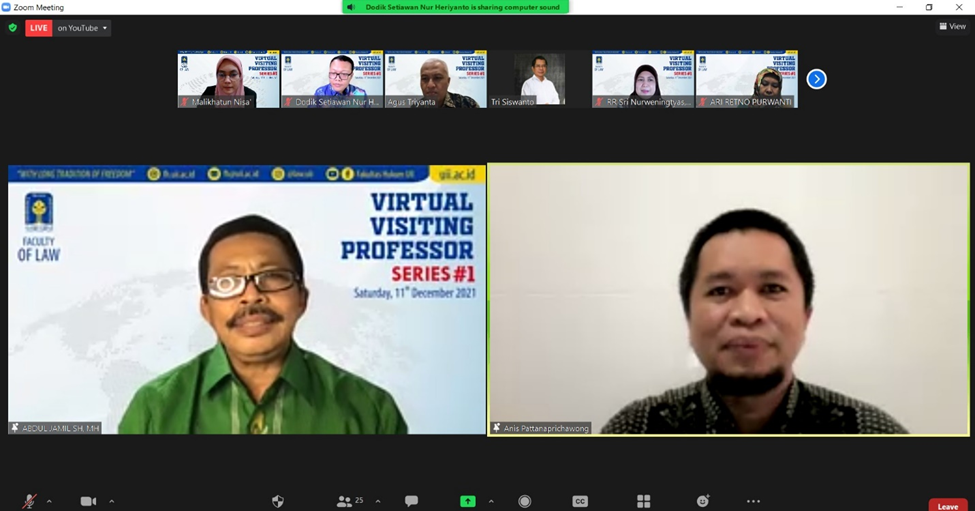
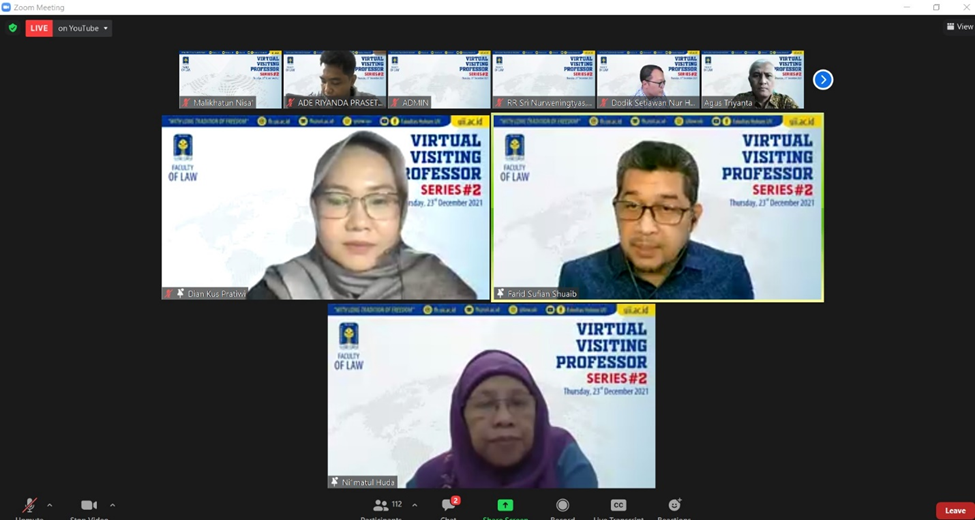
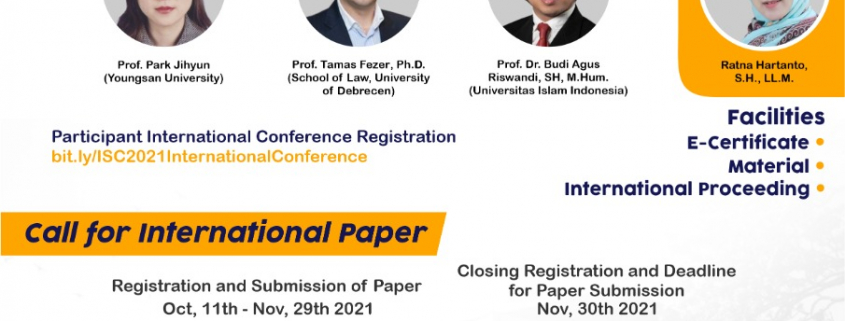
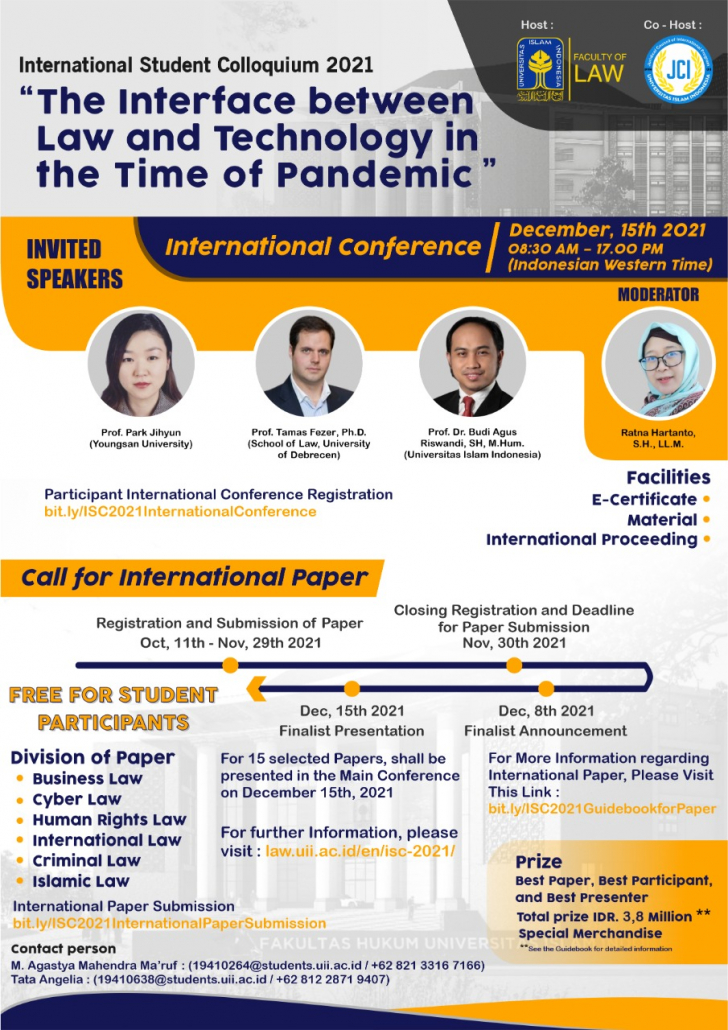
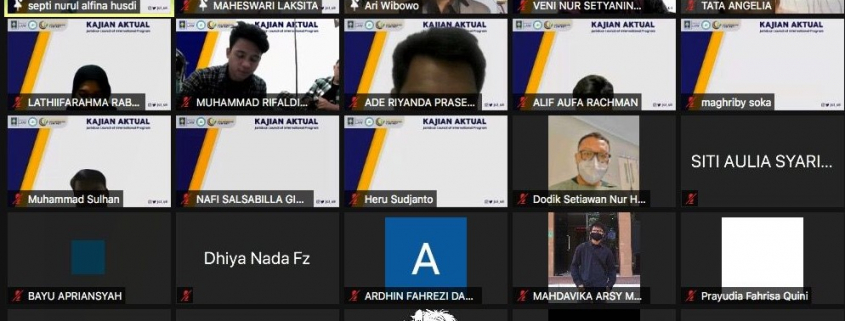
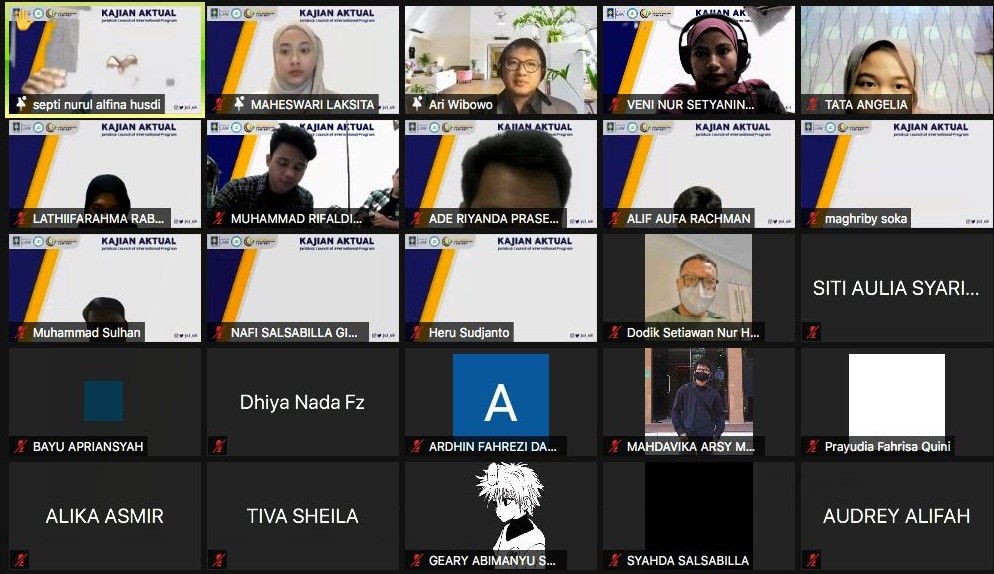
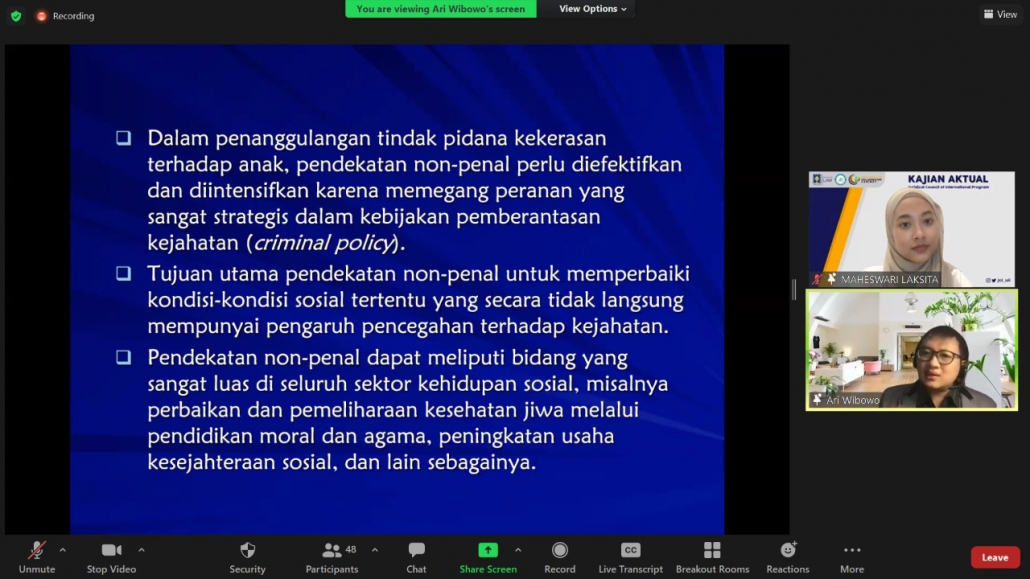
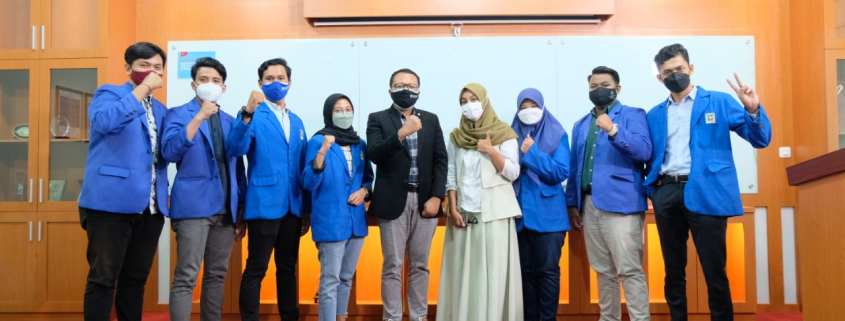
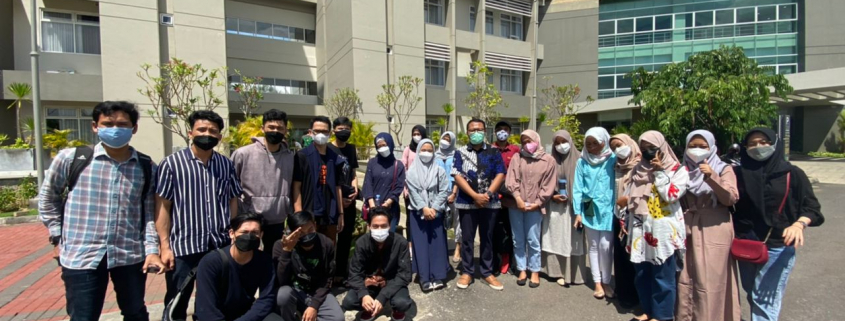
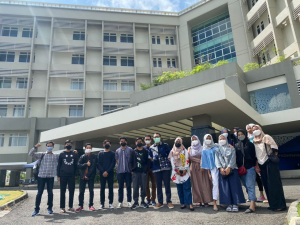
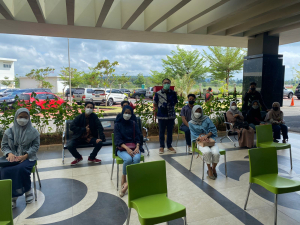
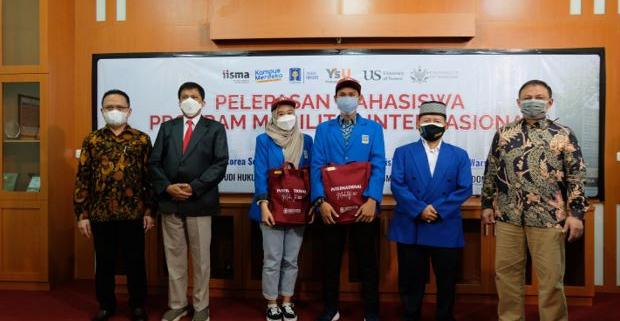
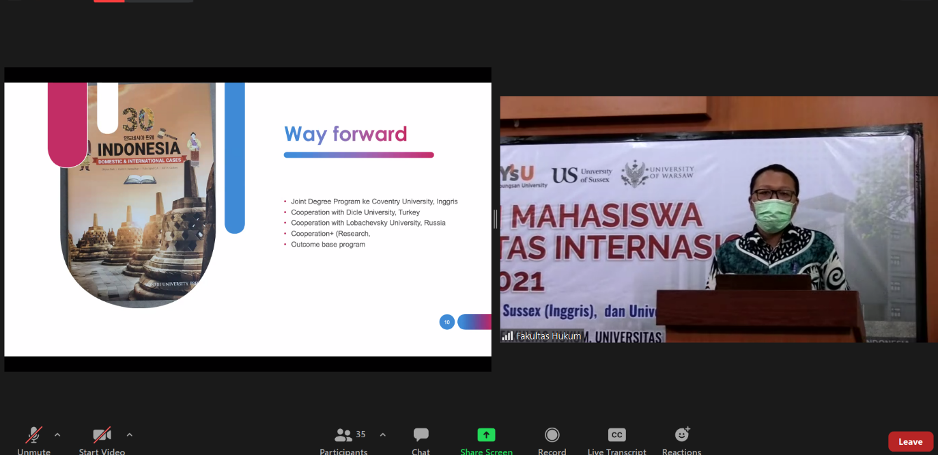 Then the delegation representatives delivered a farewell welcome represented by Aryana Sekar Widyaningsih. As for some of the names of delegates in the International Mobility Program 2021, which is divided into 3 (three) destinations; 1) Akhiruddin Syahputra Lubis, Aryana Sekar Widyaningsih, and Egita Fira Widya who will carry out credit transfer programs at Youngsan University South Korea; 2) Annisa Aulya Putri who will carry out the IISMA Program at the University of Sussex, UK; 3) Mohammad Fadel Roihan Baabud who will carry out the IISMA Program at the University of Warsaw, Poland. The release of the delegates was carried out by the Dean of the Faculty of Law, Dr. Abdul Jamil, S.H., M.H. said that in addition to parents, the delegates are very proud for us and the Faculty of Law UII.
Then the delegation representatives delivered a farewell welcome represented by Aryana Sekar Widyaningsih. As for some of the names of delegates in the International Mobility Program 2021, which is divided into 3 (three) destinations; 1) Akhiruddin Syahputra Lubis, Aryana Sekar Widyaningsih, and Egita Fira Widya who will carry out credit transfer programs at Youngsan University South Korea; 2) Annisa Aulya Putri who will carry out the IISMA Program at the University of Sussex, UK; 3) Mohammad Fadel Roihan Baabud who will carry out the IISMA Program at the University of Warsaw, Poland. The release of the delegates was carried out by the Dean of the Faculty of Law, Dr. Abdul Jamil, S.H., M.H. said that in addition to parents, the delegates are very proud for us and the Faculty of Law UII.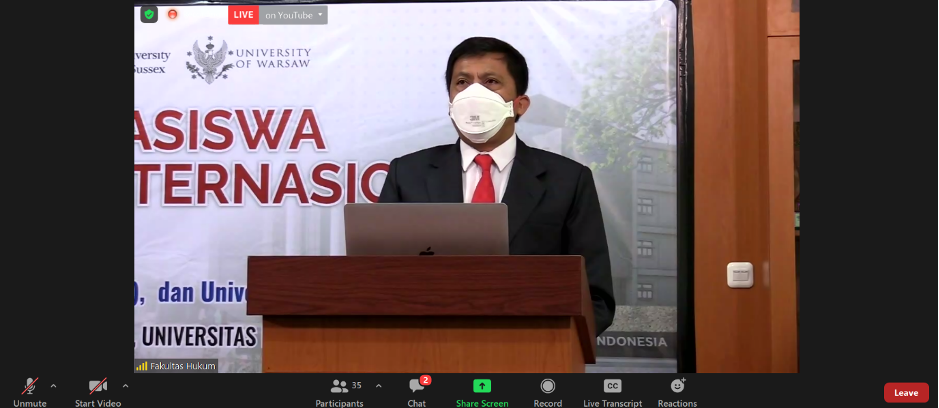 After the welcome by the Dean of the Faculty of Law UII, continued the delivery of the education kit of the Dean of the Faculty of Law and accompanied by the Deputy Dean of Resources and Secretary of the Department of The Faculty of Law, Universitas Islam Indonesia, as well as a healthy kit submitted by the Head of the Undergraduate Program’s Legal Studies Program which will be accompanied by each Secretary of the Study Program and received by 2 (two) student representatives. The 2021 International Mobility Program Student Release Event was finally concluded with a prayer that was prayed together and led by the Secretary of the Department of the Faculty of Law of the Islamic University of Indonesia, Bagya Agung Prabowo, S.H., M.Hum., Ph.D.
After the welcome by the Dean of the Faculty of Law UII, continued the delivery of the education kit of the Dean of the Faculty of Law and accompanied by the Deputy Dean of Resources and Secretary of the Department of The Faculty of Law, Universitas Islam Indonesia, as well as a healthy kit submitted by the Head of the Undergraduate Program’s Legal Studies Program which will be accompanied by each Secretary of the Study Program and received by 2 (two) student representatives. The 2021 International Mobility Program Student Release Event was finally concluded with a prayer that was prayed together and led by the Secretary of the Department of the Faculty of Law of the Islamic University of Indonesia, Bagya Agung Prabowo, S.H., M.Hum., Ph.D.